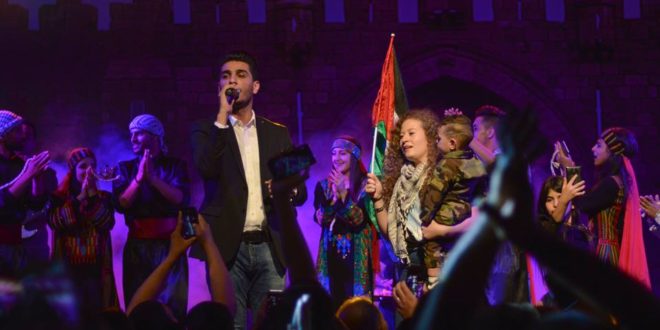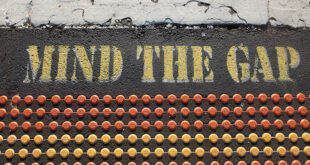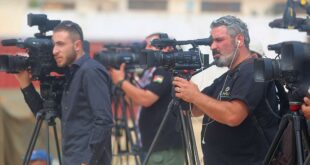Issue 26, summer/fall 2018
https://doi.org/10.70090/LB18MAVA
Abstract
This essay, based on the author’s fieldwork on Palestinian music and oral history, examines the position of singer and Arab Idol winner Mohammed Assaf in relation to the contemporary Palestinian struggle and the wider play of power in the Arab world. The issues discussed gravitate towards three main themes: the relationships between musicians and a liberation movement facing a crisis of leadership as Israel builds its repressive armoury. Second, the Arab Idol phenomenon as part of the growing interventionism of the Saudi ruling class in regional societies. And relatedly, the growing fissures between a Palestinian comprador bourgeoisie and the grassroots movement of the oppressed. More generally, this essay looks at the space for radical nationalist music and argues that, as in the crucial struggles for Palestine over the course of the last century, history and music will continue to be written on the streets.
Introduction
One evening in August 2013, I sat in the back seat of a car in a clearing over the road from the fashionable Grand Park hotel in the al-Maysoon area of Ramallah in the colonized West Bank. Two friends, Maha and Shireen took up the front seats of the car doing their makeup in the rearview mirror.[i] “How do we look?” “You both look fine.” Maha had brought with her a set of misbāha, prayer beads, in the colors of the Palestinian flag. “These are for Assaf!” That was our mission, of course. A friend of a friend of a friend had informed us that the new national icon, the singer from Gaza, was staying at this hotel. Mohammed Assaf had defied the odds to win the contest barely six weeks earlier and we were now defying logic in a moment worth contemplating: celebrity hunting in occupied Palestine.
In her critique of trends of liberal humanitarianism emanating from the US and Europe, Lila Abu Lughod warns against the sidelining of political and historical analysis by viewing the world in “cultural terms”.[ii] Her targets are the first ladies, NGOs, and elite groups whose focus, for example, tended toward the supposedly oppressive nature of Afghan culture towards women rather than the US role in the region. In the Palestinian case, writes Joseph Massad, historical materialism is “the only antidote” to the racist discourse on “terrorism” put forward by the Zionist ideologues shaping Israeli policy.[iii] Coming to the study of contemporary music making, these interventions raise questions on the roles of individual musicians in shaping history. For Plekhanov, the way society itself is organized “determines the role and, consequently, the social significance that may fall to the lot of talented or incompetent individuals.”[iv] The role they play offers “vivid illustrations” of social development. In other words, the lives of individuals can tell us a lot about the dynamics of cultural, political, and economic developments in contemporary history and vice versa.
My approach for this text draws on five years’ research on Palestinian music, encompassing many hours of interviews, informal discussions, jam sessions, and other encounters. Recognizing that the researcher can make no claim to neutrality, as noted by Swedenburg and Carr among others,[v] I work here as a partisan observer in solidarity with those on the front line of shaping the future. Interviews with Palestinian musicians reveal the striking variety of approaches on the national music scene and at grassroots level in homes and refugee camps, in deep conversation with a tradition of narration, of resistance and sumud, or “steadfastness”.[vi] Many of those quoted in my work were comrades in pro-Palestine and leftist campaigning before they offered their voices to the study; others were met on the music scene in Europe and Palestine. All had something to say about Mohammed Assaf.
Arab Idol 2013
Assaf’s Arab Idol victory on June 22, 2013 unleashed ecstatic celebration. The program, in its second season, was watched by over 10 million people across the Arab world. The singer from Khan Younis refugee camp had run, so to speak, on a campaign of proud Palestinian nationalism. The colors of the Palestinian flag adorned the singer and the audience, as Assaf combined renditions of songs from the classic Arab repertoire by Egyptians Mohamed Abdel Wahab and Abdel Halim Hafez, and Lebanese composer Wadi el-Safih. Arab media ran a commentary narrative of Assaf’s life, where viewers were informed of his humble roots and shown footage of the neighborhoods of rubble left by Israeli bombing. Aged just 22, Assaf was the working class boy raised in a cramped, poverty-stricken camp, suffering from Israel’s blockade of Gaza, which targets everything from medical supplies to water sanitation. In a land continually hit by Zionist bombing campaigns, Assaf’s success was treated like a political victory. Thousands took to the streets in celebration across historic Palestine and, for the first time, a Palestinian musician grabbed transatlantic headlines. Five years on—and five years into a Saudi-bankrolled recording contract—seems a good point to measure Assaf's success. While the UN reports of a growing human catastrophe in Gaza, what is represented by the fame and fortune of its most famous son?
Throughout Arab Idol 2013, and in the period after, Assaf was the subject of sensationalist stories in the regional press, some of them based on truth: another young Palestinian singer Ramadan Abu Nahel had given Assaf his entry number because he knew Assaf could win. Suggestions that Hamas had initially tried to prevent Assaf from leaving Gaza appear to have been false, and were used by the party's opponents to give respectability to figures from the Fatah-run Palestinian Authority in the West Bank, desperate to get in on the act. Assaf, however, kept his cool throughout the competition, playing the role of a unifier and, for the most part, didn't identify with either group in the political battle over negotiation or resistance. Assaf's song for his final performance on the show, “Raise Your Kuffiyya” (علي الكوفية), came from Palestine's folk heritage (or Iraq's, depending on who you speak to) where the scarf is used in dabke dancing. The song is associated with the bygone era of Fatah when the organization’s leadership embraced confrontation with the occupation. With new lyrics by Mohammed Al Najjar, Assaf sang:
Raise the flag in Ramallah and the Mountains of fire [Nablus]
Your proud headband is a symbol of grit and determination
The first bullet tells the story of the journey
When the time comes, we make what’s up go down
After evoking the land with reference to olive trees, orchards, and figs Assaf sends a signal of support to the resistance:
When you call my country... we will be ready
Lighting the victory paths in the battle day
Assaf's Arab Idol victory was met with rapturous scenes among Palestinians in the West Bank, Gaza, and in exile around the world. Eight million people had voted for him, including 1.7 million in Gaza. Singer and actress Reem Talhami told me that the response was comparable to the news of the death of the Palestinian poet Mahmoud Darwish in 2008. “It was a similar feeling but different at the same time. These moments united Palestinians all over the world, Assaf winning Arab Idol and Mahmoud Darwish being buried in Ramallah.” Before Assaf, Darwish had perhaps been the closest thing that Palestinians had to a celebrity figure. Regionally, musicians and artists have enjoyed huge popularity over the years, including several Lebanese and other Arab singers who have sung for Palestine and as a result become honorary Palestinians. These musicians have included Umm Kalthoum, Marcel Khalife, Fairuz, Ahmed Qaabour, Julia Boutros, and Samih Shqeir.[vii] But colonially oppressed Palestinians have often looked to more “political” figures for inspiration, to the many martyrs of the struggle, or to revolutionary Leila Khaled, to Che Guevara, or more recently to teenage political prisoner Ahed Tamimi. My student friend in Beit Hanina had posters of Hizbullah resistance leader Hasan Nasrallah and footballer Wayne Rooney side by side on his bedroom door. In an occupied, ethnically cleansed country, what is a “celebrity” after all?
Ya Halāli Ya Māli - “my riches are my own”?
Reem Talhami cried the first time she heard Assaf, back when he was 18 and won a singing competition where she had been a judge. An impression with Arab Idol was that he had come out of nowhere, but Assaf was on the Palestinian scene several years before his success. Growing up not far away, oud player Reem Anbar remembers:
“I saw him around in Gaza when we were kids. I’d be playing oud and his dad would accompany him everywhere, telling everyone that one day he’d be famous around the world.”
In the earlier competition, he performed to Talhami and the West Bank-based panel via video link from Gaza. She says, “I knew from the beginning he would make a difference... I think this is the first time we have a symbol of life, not death. A symbol of art not politics. And he's humble and he has an amazing talent.” Yet, speaking in 2013, she was also wary of the future musical direction Assaf would take, criticizing a “typical, non-artistic” brand of Arab pop. After winning Arab Idol Assaf was given a huge, 10 year recording contract with Platinum Records, a subsidiary of the Saudi-owned MBC corporation which had aired the series.
His first single on the label was Ya Halāli Ya Māli, a traditional folk refrain now arranged as a slick, polished pop song in the mold of the MTVs of the Arab world, exemplified by Saudi channel Rotana. An immaculately dressed Assaf is filmed walking slowly through crumbled Palestinian alleyways. A minute in, a young boy runs ahead in slow motion with a Palestinian flag and Assaf dances dabke, swings his misbāha beads and smiles at the camera. Soon after, we are in an open space where hundreds of young people are gathered waving Palestinian flags. Assaf kisses a baby's head. Teenage boys beat heavy drums and one lone drummer in a kuffiyya dances on the roof. Cut to a small, dirty yard and boys kick around a tattered football through the puddles. One of them scores and the kids are jubilant, jumping in the air broadly smiling. The Palestinian flag flies below a summer sky as Assaf sings of its waving “in the rays of the sun.” The lyrics feel hard hitting and are directed unmistakably towards the Palestinian people:
Your glory stays no matter what
Fenced around the homes
More precious than blood
The precious will never be saleable
Assaf runs up the stone steps of a building to arrive on the roof, looking out over the dilapidated, tightly packed refugee camp. The look on his face is contemplative and his vocals sing melismatic phrases as backing singers hold the refrain. A personal message is attached to the video's outro with the concluding words “I will never forget where I'm from.”
The concept of Ya Halāli Ya Māli has great depth in the history of Palestinian folklore. Veteran folksinger Ibrahim Sbehat explains that the meaning of the phrase goes back over 200 years and is thought to come from the story of a Palestinian farmer who had money and sheep but lost all he had when thieves took them from him. According to the tale he wandered the streets shouting “ya halāli ya māli,” which in this case meant “my sheep my money,” and little children chased behind him shouting the same phrase. Over the years it became the refrain for a traditional song, with many different versions by a range of artists.
To break down this refrain further, halal is recognizable from the familiar halal food or behavior. It is the opposite of haram, which means forbidden. So literally halal means something precious, holy, although not necessarily in a religious sense. Sheep are one example of a halal noun. Halāli (with the i denoting first person possession) can refer to something of value to the person; a wife or husband, a pet or an animal, or personal riches of some description. Māl, in the vast majority of instances (at least formally), means money. It can also mean gold or some other form of wealth (capitalism is ra’isumaliyyeh). So māli is “my wealth”. In regional dialects mali can also mean “mine”. “Ya halāli ya māli” has therefore been translated as “my riches are my own.” But the meaning ya in this phrase is a calling out to something: “You are my riches, you are my own.”
Both the song and video contained all the artistry and contradictions of the Assaf phenomenon. Assaf stood defiantly as a Palestinian, singing of the preciousness of home. But this was a Platinum Records and MBC production. The corporations who were now Assaf's patrons were happy to sell Palestine as a packageable commodity in the form of a musical product. While Assaf sang “Ya halāli ya māli” to his homeland and to his people, the record executives and Saudi royals were singing it to Assaf. The success he generated would be appropriated by the rich.
The first half decade of Assaf’s Saudi record contract has been accompanied by maneuvering in high places, as Crown Prince Mohammed bin Salman spearheads a new ruling clique, waging war at home and abroad. In the region, the Saudi-led war on Yemen has brought untold misery and death;[viii] the government has allied itself to Israel and to a pro-US axis in the region, and interferes politically and militarily in Syria, Lebanon, Bahrain, Libya, and beyond. Internally, the Crown Prince has issued a fierce warning to would-be rivals. Under the guise of tackling corruption, over 200 princes, ministers, and capitalists were placed under house arrest in November 2017. Chief among them were the wealthy owners of of MBC and Rotana Group.[ix] MBC mogul Waleed Al Ibrahim faced extortion and his freedom of movement limited; by January 2018, the Saudi state was reported to have taken over the company. While these media outlets were already known for their support of the dictatorship, the priority placed by Mohammad Bin Salman on securing control hints at the power they offer. As noted by Cochrane, the Saudi monopolization of Arab media reflects a global trend where a small group of multinationals dominate the market.[x] Linguistic trends are studied as media programmers tune in to the profit making potential of a vast region.[xi] As part of the package, Arab Idol and MBC records remain the playthings of warmongers.
The soundtrack favored by this elite for such highly politicized times is indicated in Assaf’s musical trajectory. After Ya Halāli, subsequent singles dropped the red, black, white, and green of the Palestinian flag and became part of the brand hinted at by Reem Talhami. Arab Idol, now heading into its fifth season, inspired Arabs Got Talent, and continues to attract millions of viewers. Both were modelled on the initial Britain-born franchise began by manufactured pop millionaire Simon Fuller, offering singers a kind of musical lottery. The winning ticket in all cases was subservience to the demands of Fuller’s record company. For Raghda, a refugee musician who left Gaza for Britain, this music world is far removed from the political music of the intifada (uprising) in Palestine, based on themes of revolution and a deep-rooted attachment to the land: “after Assaf, music is too commercial. They want to sing and be famous.”
Assaf and the Palestinian elite
The Grand Park hotel in Ramallah is in stark contrast to its surroundings. Its decor wouldn't be out of place in the playgrounds of the khaliji oil monarchs of the Gulf, who keep their thrones with European and North American political, economic, and military support. But this is Ramallah, the makeshift capital of the West Bank. Such hotels are dotted around the area along with the lavish buildings of the Palestinian Authority (unelected, with EU-trained security). The local refugee camp at Qalandiya is bursting at the seams and is frequently invaded by Israeli troops. Israeli settlements are encamped on the surrounding mountainsides and the apartheid wall clasps the ground like a concrete snake. A friend, Mohammad, commented that Zionist settlements are usually built on high ground, like forts, “looking down on us.”
Rooms in the Grand Park start at $140. It was built in 1997 and became part of a chain when another was built in Bethlehem. Another is planned for Jericho. The company CEO Mohammad Zomlot is a tycoon with many business connections including the Palestine Investment Fund (PIF), which helped establish the Grand Park hotel company,[xii] boasts of making a $60 million profit in 2009, the year after the international banking crash. The PIF's assistance to the hotel chain meant that it could pay off its debts to the Arab Bank among other financial institutions. Its chairman Mohammad Mustafa has worked as a private investment advisor to the Saudi government. The Arab Bank is headed by Sabih Masri, another of those placed under house arrest in Riyadh and the billionaire cousin of the so-called Palestinian Godfather, Munib al-Masri, whose net worth was estimated at $5 billion in 2013.[xiii] Munib al-Masri pledged his support to Assaf as soon as Arab Idol kicked off, appearing in the audience a couple of shows in, earning him a shout-out from Assaf from the stage.
Al-Masri, also known as the Duke of Nablus, lives in Beit Falasteen a palace designed by his architect son and built on top of Mount Gerizim, a high hill over surrounding villages and refugee camps in the West Bank countryside. Had he not paid the high price, he says, the area where he had his home built could have easily become a Zionist settlement. Other Palestinians in Nablus are not so lucky. Jessica Purkiss reports that:
“Palestinians in the Nablus governorate are effectively living in a sea of settlements. The district is home to 12 Israeli settlements and 37 outposts - the latter of which are illegal under Israel's own laws. Nablus is also the scene of half of the settler attacks carried out against Palestinians in the West Bank.”[xiv]
A world away, al-Masri made his money in oil and gas in Jordan before moving to financial services and other ventures. The Financial Times tells us that “Al-Masri also plays an active role in mediating between Arab and Israeli parties, often hosting Israeli political and business leaders.”[xv] He boasts of his expensive collection of antique furniture, archeological treasures, and artefacts that were transported via Jordan to the palace in 240 containers, each 40 square feet. He told the Financial Times that “almost every piece could be in a museum.” With the appearance of Mohammed Assaf on Arab Idol, Munib al Masri set about buying himself another artefact.
At a $100-500 a ticket event hosted by the American-Arab Anti-Discrimination Committee (ADC) at George Washington University on November 17, 2013, just months after Assaf's thrilling victory, Munib al Masri was awarded the Turaath Heritage Award for his “generosity in the areas of social welfare. He is especially being recognized for his efforts to mentor the Arab Idol and Palestinian vocalist Mohamed Assaf.” Assaf performed at the ceremony, alongside fellow Arab Idol contestants Farah Youssef from Syria and Ziad Khoury from Lebanon.
Our trip to the hotel ended in disappointment. “He's not here,” said the receptionist, smiling wryly. Maha and Shireen didn't believe him.
“Where can I go?” لوين بروح
Assaf's appeal comes at a time when Palestinians' mistrust of their leadership, and especially of the Palestinian Authority (PA), is growing. Not only has Fatah leader Mahmoud Abbas discouraged resistance to occupation (in 2014 he said, “as long as I am in power, there will be no third intifada”), but his Western-backed security apparatus has locked up activists and protesters in prison in Jericho, not least in its collaboration towards the Israeli assassination of activist Basel al-Araj on March 6, 2017. In the months after Assaf's rise to fame on Arab Idol, demonstrations in the West Bank and Gaza took place against the “peace” negotiations, where Israeli president Netanyahu boasted of having pulled the Palestinian leadership “down from the tree of concessions.”
Yet the resistance groups involved in the second intifada, including Hamas, are seen as being compromised. There is a crisis of leadership and questions over the future of the liberation movement. Maha told me that “people here don't trust the leadership, that's why they support Assaf.” This was a view shared at the Sabreen studio in Jerusalem. Said Murad, the composer behind the legendary Palestinian band that gave the studio its name says that Assaf came “at a time when people were fed up of politicians and religious leaders and all kind of political [figures].” While critiquing the musical content of Assaf's output as “nothing new,” Murad says the singer is “the most important figure” in Palestinian music right now, adding that with Palestinian music generally, “I don't see a new experience.” This could be said of the politics of this era of impasse. With Trump offering a free hand, Israel has shown that it will act with impunity in bringing brutal repression to the West Bank and Gaza without suffering any significant condemnation from its principal sponsor. Settlement building and evictions gather pace in Jerusalem but the EU/US backed comprador bourgeoisie represented by the Palestinian Authority is unable to respond. Writer and Palestine Chronicle editor Ramzy Baroud says that the eventual exit of Mahmoud Abbas as PA leader could provide an
“opportunity for Palestinians, fed up with the endemic corruption, political tribalism and across-the-board failure, to step forward and challenge the moral collapse of the Palestinian Authority and the charade of self-serving “democracy” of factions and individuals.”[xvi]
Mohammed Assaf is of course tied to this process. After winning Arab Idol he accepted invitations to Palestinian Authority functions as an honorary cultural ambassador and became a Youth Ambassador for UNRWA. He has been unable or unwilling to shake off his association with the Fatah leadership, let alone the Israeli-allied Saudi rulers who pay his wages. But his political statements, though infrequent, seem to contradict this affiliation. When Maha and I interviewed Assaf at Westminster Hall in London in November 2014,[xvii] he spoke in favor of the boycott of Israel, adding:
“I don't like to talk politics but I understand and I know what's going on in my own country you know... So boycotting these products, especially from the settlements, this is a thing that we have to spread and talk about, because these settlements are not legitimate… [Palestine] This is a part of my life as a singer/artist and you'll see it in my show.”
Unfortunately, our luck in securing the interview didn’t extend to being able to see the show—tickets were £80 in the cheap seats and Assaf’s entourage were less than hospitable. Elsewhere in our discussion Assaf highlighted the history of anti-colonial music originating in the Palestinian struggles against the British mandate occupation. At other times he has made public statements in support of prisoners and called for resistance against Zionist settlement building. During Operation Protective Edge, the murderous Israeli bombing campaign which hit Gaza's schools, hospitals and homes in summer 2014, Palestine's supporters around the world shared Assaf's “Raise Your Head High” (ارفع راسك هذا سلاحك), a song dedicated to the Palestinians on the front line.
By performing “Raise Your Kuffiyya” in the Arab Idol finale, Assaf had evoked strong sentiments of Palestinian national unity. Writing for Electronic Intifada, London-based Palestinian vocalist Reem Kelani applauded Assaf's musical abilities but warned him against making false friends in politics: “Assaf’s repertoire may be very versatile in terms of Arabic music, but he must ensure that his repertoire on stage encompasses all Palestinians, and that off-stage, he doesn’t allow himself to become the musical mouthpiece of the PA.”
Others see Arab Idol as a way of diverting Arab populations from the struggles that matter. In an interview in Ramallah, singer and composer Basel Zayed said, “I think it’s a very clever political game packaged with a pop musical entity.” Of course, everything is political in Palestine. Zayed speaks passionately about the contradictions of Western funding to the PA and to cultural institutions in the West Bank, while many Palestinians live in poverty or in camps.
The broader policies are hard to ignore. Saudi Arabia, where MBC is based, receives vast amounts of arms from Britain (£4.7 billion in approved sales from 2015-18), and remains embroiled in a deadly intervention in Yemen. Music may be seen as something apart from all of this, but the forces controlling the music industry also control the war industry.
Plekhanov argued that had historic figures such as Napoleon died earlier or been replaced before their impact on major events in their histories, the general trend of their period would remain the same. It is important to point out that while Assaf is one man of considerable talent, many more important Palestinian musicians have come before and after him who have not been catapulted to such dizzying commercial success. Of course, singers do not create movements on their own. The great Palestinian musicians over the years, from Sabreen to Shafiq Kabha or the hip-hop group DAM have offered political songs capturing the mood of the situation. In exile, projects like George Totari’s Palestinian-Swedish group Kofia have held the flame for the return of Palestinian refugees. Young musicians like Christine Zayed and Reem Anbar fall below the commercial radar.
The people of Palestine have withstood decades of occupation and bloodshed but they refuse to submit. The resistance to colonization and apartheid goes on. But there are clearly battles ahead over the leadership of this movement. Mohammed Assaf is now part of a Saudi-dominated sphere of cultural production. Time will tell if he must be wedded to the elite or if he can break the mold that has been set for him.
A recent Assaf hit is entitled, “Where can I go?” (لوين بروح؟). The search for answers has been a mainstay of the movement—see Sabreen’s post-Oslo period album “Where to?” (على فين؟). With a recent buildup of protest sparked by Trump’s backing Zionist settlement plans and the internment of youth activists, many Palestinians are beginning to ask themselves the same questions.
Conclusions
On August 9, 2018, Israeli airstrikes targeted the Said Mishal theatre in Gaza, totally destroying the meeting point of Palestinian culture for thousands of people, a place of music, dance, theatre, and art. Barely a week later, Palestinian artist Malak Matar was denied a visa by the British government to attend exhibition of her own work. The implications of Zionist colonization are far-reaching for cultural actors and “ordinary” Palestinians, the line between which is often imperceptible. Discussing the cultural reverberations of the nakba, the ethnic cleansing of Palestine in 1948, Rosemary Sayigh writes that, “The impact of the disaster upon this traditional peasant culture was not to destroy or erode it, but rather to build up counter-forces, particularly that of political organization”.[xviii] Echoing Marx on capitalism creating its own gravediggers, colonialism is at the same time repressive and productive of a range of cultural phenomena, writes Massad.[xix]
The response of Palestinians in Gaza to the demolition of their theatre was to take to the streets in protest and in song. A band was filmed amidst the rubble singing Julia Boutros’ song about the victory of the Lebanese people against the Israeli invasion of 2006. Lyrics of resistance in the face of overwhelming destruction. The songs of Assaf, too, have found their way back to the streets. When students at the University of Manchester marched the Israeli ambassador off campus in October 2017, speakers blared the Arab Idol winner’s anthem, “dammi Falastini!” (“my blood is Palestinian!”). Music has been a central mode for the transmission of Palestinian narratives of resistance and sumud. In the hands of pro-Zionist ruling classes, it risks being stripped of its revolutionary vitality in the struggle for Palestine. But if the elites can appropriate the voices of Palestine, then maybe, just maybe, they can be taken back.
 Arab Media & Society The Arab Media Hub
Arab Media & Society The Arab Media Hub





